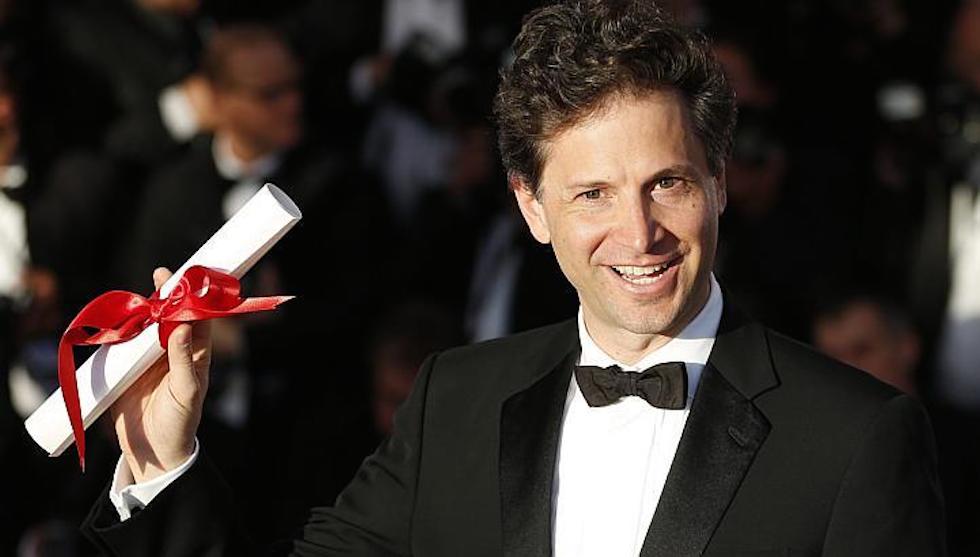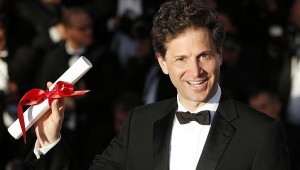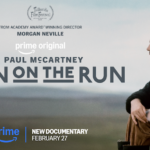A ROUNDTABLE INTERVIEW WITH DIRECTOR BENNETT MILLER
On November 5, 2014, I had the opportunity to take part in a roundtable interview with Academy Award nominated director, Bennett Miller. His previous films, Capote and Moneyball both received critical acclaim, and I would not be surprised if his latest film, Foxcatcher, follows in their footsteps by garnering multiple Oscar nominations. The film is based on the bizarre true story of millionaire philanthropist John du Pont (Steve Carell) who invites gold medal wrestlers Mark Schultz (Channing Tatum) and his brother Dave (Mark Ruffalo) to his lavish estate to train for the 1988 Seoul Olympics. What proceeds is a story of wealth, acceptance, and tragedy. During our interview, Miller discusses a variety of topics including: his atypical casting choices, working with producer Megan Ellison, the years it took to get this film made, and how Channing Tatum was his only choice for Mark Schultz. Here are excerpts from the interview. Please note there are MULTIPLE spoilers to specific scenes and key plot points.
The participants:
Bennett Miller (MILLER) – Director: Moneyball, Capote
Paul McGuire Grimes (PMG) – Twin Cities Live, Paul’s Trip to the Movies
Ruth Maramis (RM) – Flix Chatter
Eric Henderson (EH) – CBS Radio
PMG: So I just have to have to say that I really enjoyed the movie. It’s think it’s very chilling and suspenseful, and I love the character buildup in it. I’ve noticed that all four of your movies are all based on true stories. Is that something that you look for? Are you more inspired by real life events that you like to dig into and research or is it just mere coincidence?
MILLER: I honestly don’t know. I mean I don’t look for it. I don’t tell people “Oh I’m looking for a real life story.” It just happens that way. I like real life stories. Real life stories, at least for me they do, all have to have an allegorical quality. They add up to something more than just the story. I try to do these stories because you can see more into them. You can treat the real life story and examine the real story with cinema in a way you cannot examine it with any other medium. So, compared to news coverage or another form of journalism, a film can actually do something in the exploration of the truth of events that “non-fiction” formats can’t. Cinema can capture and shine a light in areas where nothing else can.
PMG: How did you first hear about this story? Did you read Mark’s book or was it a script you came upon?
MILLER: A total stranger approached me at an event and handed me an envelope that I would learn contained newspaper clippings about the story.
PMG: That seems a little creepy, but…
MILLER: A little creepy, but that’s how it happened. I then set about exploring it and researching it, getting drafts done, and the screenplays.
RM: How long ago was that?
MILLER: That was eight years. 2006.
PMG: Something you’ve always been working on when doing the other films?
MILLER: Yeah.
RM: I just have a quick question about casting. How did Steve Carell come into being cast as John du Pont. And also related to that, Vanessa Redgrave?
MILLER: Well. Steve Carell’s agent threw his name into the mix, and I can’t take credit for having been the first to think of it, but it did make a certain kind of sense, in part, because nobody expected John du Pont to murder Dave Schultz. You don’t want an actor in that role who you would expect to murder somebody, and it’s exciting when an actor breaks out of what’s expected of them. I just had a lot of confidence that he had it in him. I thought it was just a question of him getting the right opportunity to do something like this.
PMG: I think you have a real good knack for doing that. I mean, Jonah Hill and Chris Pratt in Moneyball gave performances I don’t think anyone expected them to give and now he’s [Hill] doing The Wolf of Wall Street. I think you definitely have something do with that. And now with Steve Carell, you have him to do this side that we have never see him do before and it’s fascinating and it’s brilliant to watch him do this.
MILLER: Yeah or there is a tendency to restrict people to opportunities that only allow them to do things similar to what they have done before. So, I think it’s probably true that most people are capable of far more than they get the opportunity to prove, but as it happens in this industry, there is a strong tendency towards derivation.
PMG: Do you ever get resistance from the studio or anyone saying “I don’t know if you want to cast Carell in this” or do they just kind of give you the free reign to do it?
MILLER: Well, it was [producer] Megan Ellison, so no. She’s just very supportive and pretty certain. Had it been another studio, perhaps, it would be very possible.
EH: What is the working relationship with her? I mean she’s really a superstar right now in the field.
MILLER: It’s ideal because ultimately her interest is the same as the filmmakers and filmmaking is a tricky industry because it requires partnerships with financiers whose interests necessarily are not identical to the creative interests.
EH: Which is sort of mirrored in the film itself, the financial aspect of it.
MILLER: Which is, I think, one thing that was interesting to her, you know, but those interests rarely are 100% harmonious and compatible. In the case of Megan, I think ultimately what she wants more than anything else, the biggest consideration and the governing principles that the movie is everything that it can and should be. She cares more about that than anything. It’s not that she doesn’t care about the financial side or it’s not that she’s reckless about or ignorant of that, it’s just that she cares about the creative aspect more. It makes for a very ideal partnership with the filmmakers I think.
RM: It’s kind of fascinating to me that the two female characters, the mother and also the wife of Dave Schultz, are both played by the British actresses and they are also not who I would expect to play those roles which enhance the roles themselves.
MILLER: It’s a coincidence that they are British. Although Sienna [Miller] is half American, her father is American. Why wouldn’t you expect those actors? Which actor would you expect? Which actor is cast in a role that makes common sense?
RM: I don’t know now that I’ve seen it.
MILLER: In this movie.
RM: In the role, I can’t imagine anyone else playing them. On the top of my head, maybe somebody like Amy Ryan, maybe, for the role of Dave Schultz’s wife. I thought Sienna did a great job. And Vanessa Redgrave can pretty much do anything.
MILLER: She [Redgrave] is so good. I think of everybody she seems to make the most natural sense, and she’s probably playing closest to her strengths compared to the other actors.
EH: One actor we haven’t really mentioned yet is Channing Tatum. I think right now we haven’t come up with a word like “McConaissance” yet. Clearly, he’s on the verge of that or is even in the mid of it. Was he an actor you wanted specifically for this role from the get go?
MILLER: Yeah, totally. I offered the part to him eight years ago.
EH: Hmm…So based off Step Up, you said…
MILLER: Before that. Based off of A Guide to Recognizing Your Saints. I saw the film and I hadn’t seen him before, hadn’t heard of him before, and I offered him the role before there was even a script. I got a meeting with him, and I said, “I’m intending on making this film” and I walked him through it. He hopped on eight years ago and then things took a while and things started to unravel. I couldn’t get the movie made. I made Moneyball and came back to it. When I was finishing up Moneyball, I bumped into him on the Sony lot and said “I’m still planning on making that film if you’re interested” and he said “Yeah”. All that other stuff came after.
EH: By that time, his metric score had risen considerably.
MILLER: It had, but A Guide to Recognizing Your Saints, if you just based it on a projection of that one thing you probably would not have imagined that his career would have taken the turn that it did. He would go on to make the kind of movies he did, not that there’s anything wrong with those, but it’s just different. A Guide to Recognizing Your Saints was the thing that gave me the confidence that he was right for this to the point where I really didn’t have a second choice.
PMG: I like that his character, unlike Carell’s, you know a lot about his character, he’s vulnerable and he brings those aspects apart. We don’t see that a lot from him. There’s a very different side, and it’s a wonderful performance from him. Hopefully, people see that and trust him more than the other roles he typically gets.
MILLER: I hope so. I think they will. Again, he’s another one because of his qualities he tends to get used for particular things and he becomes known for that. I don’t see him to be any better suited to do rom-coms than he is to do something like this. In some ways, I think this is much more closer to what his natural vernacular would be as an actor.
PMG: Can you talk a little bit more about the filming style? There are a lot of wide shots where you let the camera sit and watch all of the images come across, very dialogue free, you just watch the characters. There’s a lot of improv on the set, correct? Can you talk a little bit more about that and the idea behind that?
MILLER: The improv or the wide?
PMG: Both. Did they both play into each other?
MILLER: The wideness, the steadiness, deliberateness of the style, the austerity of it, I would say is meant to concentrate you and sensitize you to the subtleties of what’s happening.
PMG: It works.
MILLER: The “dialogue-less-ness” of the film similarly, I think, draws you in and sensitizes you to pay attention to what’s not being spoken in the times when there are words so the style hopefully helps you process a film that’s communicating on different frequencies. There’s lots going on…
PMG: That‘s not said.
MILLER: Exactly. As far as the improvisation goes, it’s actually linked to that as well and as much as we’re looking for ways to express things in the way that people express things inadvertently, so you can have the same words and one reading will reveal one thing and another will reveal something else and to really make that work, sometimes, or often times, it proves most effective to really just experiment and see what happens. There’s a scene when the two brothers are warming up at the beginning of the movie where they wrestle and it gets out of control. It was scripted, more or less, but I decided to shoot it like a documentary and ask them [Ruffalo and Tatum] to start the scene much earlier than the scene had been conceived to start. When I watched the footage and assembled the first cut of that, it became clear that we learn about these two guys, who they were, and who they were to each other and the rivalry, and the reverence, the competitiveness, and the love, it’s all in there. I was able to cut something like twenty minutes of scenes.
EH: Speaking of things left open to interpretation, I’ve read some online debate now about this too, there seems to be a thread of sublimated homosexuality going on in the character of John du Pont. Is that one of those things you had in the back of your mind or was it inadvertent?
MILLER: Sublimated I would say. I don’t think that anything ever became explicit.
EH: The only shot where I questioned was the midnight bout.
MILLER: That kind of stuff happened. I think that’s how it expresses itself, but it never quite gets admitted that that’s what that is.
EH: It’s politically tricky and dangerous too, I would imagine, to ever insinuate that.
MILLER: I would have no problem if I thought that’s what happened. I think what happened is what we show what happened. The bigger issue is that thematically you’ve got a character who is fundamentally incapable of admitting and accepting who he is and he, himself, living in the shadow of his ancestors
EH: Exceptionalism.
MILLER: Yeah and trying to live up to some inherited role or a concept of an inherited role or something like that but the truth of his inadequacy, the truth perhaps of his sexuality, the truth of his leadership abilities, or lack thereof…
EH: Or that his mom’s children as horses essentially.
MILLER: Right.
RM: So I think that’s why he identifies with Mark maybe because you know he felt like Mark was always under Dave’s shadow too.
MILLER: Mark was susceptible to that and he understood that I think. I also think each saw the other, Mark and du Pont, as an answer to
PMG: the void that they had?
MILLER: Yeah. Somehow the other one was the answer you know to validate each other.
RM: They thought they could complete each other or something?
MILLER: Or together that this guy, who he is, and that he would ally himself with me is the form of validation that I want. Meaning, both of those characters I think thought that.
RM: There are so many favorite scenes, but the one that stood out to me was the one in the chopper where Mark and John were trying to say “I’m a philanthropist…” and Mark just couldn’t get it, and they just keep repeating those three words. I thought there was something eerie and that they were snorting heroin…
MILLER: Cocaine
(Everyone chuckles)
MILLER: They would never do heroin.
RM: Right. I am just wondering, what is the most challenging scene? Are there any for you that were just tough to get down?
MILLER: That scene turned out to be pretty easy just because Steve Carell somehow conjured up what happened and he improvised that. That just came out of him. Often it was the simple scenes that you trip up on. The big dramatic intense scenes like when Channing beats himself up and wrecks the room and gorges. Big scene in the script. Big scene in one take. Only one take. Some of the other quieter scenes end up being the most difficult. The simpler they are, the more unforgiving they are.
PMG: Can you talk a little bit more about the research process? Did you get a lot of support from the Schultz family or even the du Ponts about what happened?
MILLER: The Schultzes very much so. Mark Schultz, Nancy Schultz, Nancy’s kids. Dave Schultz was somebody who had a thousand best friends, and I feel like most of them came out of the woodwork to support us and put their trust in us. I spoke to law enforcement officials, people who participated in the siege, cops who lived on the estate. I spoke to a few du Ponts who gave us a little bit of insight but they weren’t around too much. And, of course, wrestlers, the wrestling community.
EH: How mind blowing to win at Cannes?
MILLER: (long pause) How mind blowing to win at Cannes?
EH: I mean, you beat Godard.
MILLER: That’s so American of you.
EH: And Godard would say the same.
MILLER: Right. It’s very nice to be regarded by your peers. It is what it is.
EH: It is what it is.
MILLER: It’s what it amounts to. I wouldn’t say its mind blowing. It was more just sort of humbling.
EH: You strike me as someone who might be more humbled.
MILLER: It’s humbling and the overwhelming feeling is gratitude and even some kind of debt. You want to live up to people’s hopes for this medium. It’s a very difficult thing to work. It’s a complex thing. Anyway, it felt nice.
RM: Congratulations!
PMG: It’s a wonderful movie. I’m excited to see what other people have to say once it opens, and the praise Steve gets, and Channing, and Mark, who we didn’t talk about, but is always fantastic.
MILLER: He’s the heart of the film.









3 responses to “A ROUNDTABLE INTERVIEW WITH DIRECTOR BENNETT MILLER”
Excellent read! Well done and congrats on the interview 🙂
Thanks, Nate! I really appreciate it.
Awesome! Great questions. It is so cool that you got to do this. I am so proud of you!